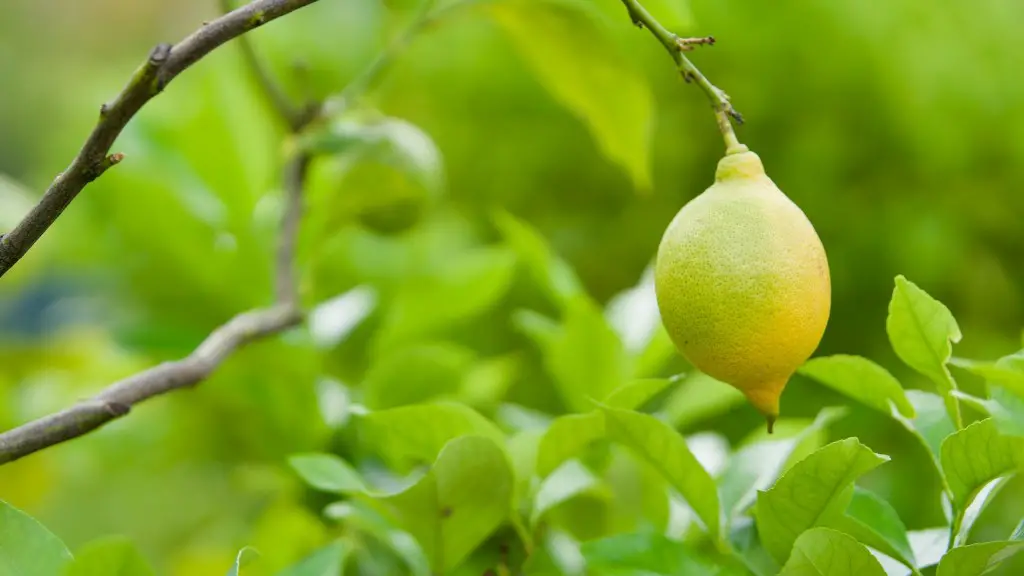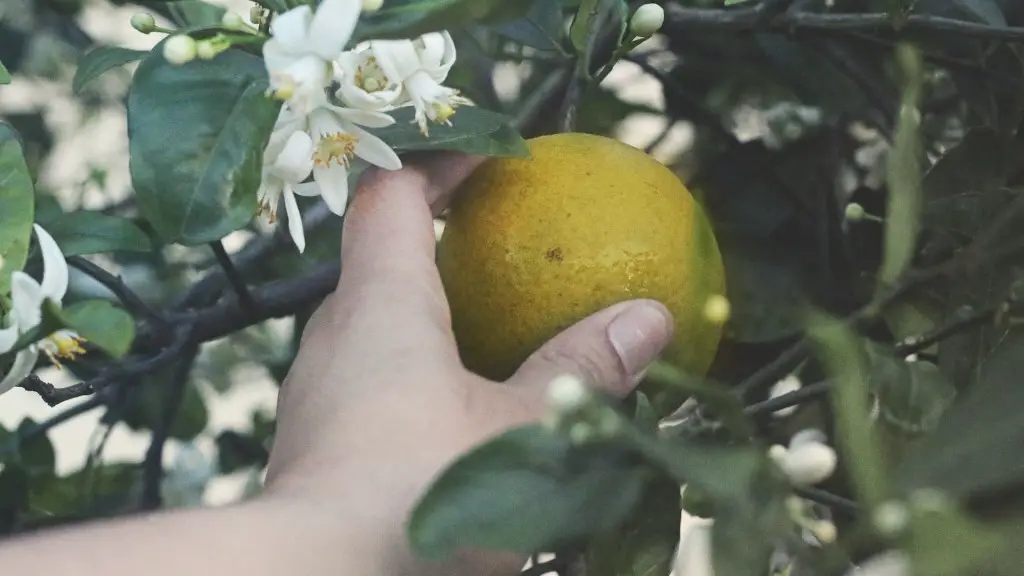Fruit flies on lemon trees are an annoying disruption to a healthy, thriving garden. While these insects may not cause any serious damage to the tree, they can be very difficult to remove. The good news is that there are various strategies that you can use to get rid of fruit flies on a lemon tree. Here’s what you need to know.
One of the best measures to take to remove fruit flies from your lemon tree is to keep the tree area clean and tidy. Remove any fallen fruit or dead leaves as they can provide a food source for these pests. Keep the soil around the tree free from debris as well. Additionally, you may also want to use an insecticidal spray on the tree’s foliage to kill fruit flies.
You should also ensure that your lemon tree is pruned regularly. This will help to reduce the amount of places that fruit flies can hide and lay their eggs. If you notice any significant amount of pruning, it is best to treat the affected areas with an appropriate insecticide.
Another effective method of controlling fruit flies on lemon trees is to use yellow sticky traps. These traps contain a sticky substance that can entice the fruit flies, trapping them in the process. By strategically placing these traps around the tree, you can catch and remove a large number of fruit flies.
Finally, introducing beneficial insects such as lacewings, ladybirds and praying mantises can be beneficial for the removal of fruit flies. These insects can help to keep the fruit fly population in check, reducing the need for chemical insecticides. Additionally, these insects can also help protect the tree from other harmful insect pests.
Traps to Get Rid of Fruit Flies
Using traps to get rid of fruit flies is a great way to reduce their population in your garden. There are several types of traps available, including bottle traps and sticky traps, which can be used in combination to increase their effectiveness. As mentioned above, yellow sticky traps are an especially useful type of trap and are especially effective at trapping fruit flies. They consist of a small yellow sheet with a sticky substance which attracts the flies and allows them to become stuck to the sheet. Bottle traps, on the other hand, consist of a plastic bottle filled with an attractant, such as a mixture of yeast, water and sugar, and often attached to a whiteboard to attract the flies.
To increase the effectiveness of traps, it is important to position them in an optimal location. The best locations are areas near the lemon tree, as they will attract fruit flies which will then become stuck in the trap. Additionally, keep in mind that traps should be placed away from any flies’ food source, otherwise it can be difficult for them to find the traps.
When placing traps, it is also important to change the attractant regularly. This ensures that the traps remain an effective solution for controlling fruit flies and prevents them from becoming immune to the attractant. Additionally, it is important to remove the trapped fruit flies from the traps regularly, as this prevents them from breeding within the trap.
Finally, remember that traps are best used in combination with other control methods. This allows you to reduce the population of fruit flies more effectively and quickly to get the most out of your gardening efforts.
Chemical Insecticides
Using insecticidal sprays can be an effective method of removing fruit flies from lemon trees. These sprays contain pesticides that can not only kill the adult flies but also any eggs or larvae that are present. This makes them a useful tool for long-term pest control. When using insecticides, it is important to read the directions carefully and follow the instructions closely.
It is also important to note that chemicals should be used sparingly. It is best to apply just enough to the affected areas and then allow it to dry. This will help to avoid any damage to the tree or any of its surrounding foliage.
There are various types of insecticides available, so it is important to choose one that is appropriate for your situation. Additionally, consider the duration of effectiveness when choosing an insecticide. While some are designed to be effective for only a few days, others are designed to provide long-term control.
Lastly, remember that chemical insecticides can be harmful to other garden plants and animals, so use them sparingly and only when necessary. Additionally, it is always best to consult with a professional gardener or pest control expert before using any pesticides.
Physical Barriers
Using physical barriers is another great way to keep fruit flies away from your lemon tree. These barriers can include screens, netting, or even plastic barriers placed around the tree. These barriers should be placed as close to the tree as possible and can be effective in preventing the flies from accessing the tree. Additionally, they can also be effective in keeping out other pests, such as ants and aphids.
It is also important to note that physical barriers need to be solid and secure, as any small gaps can be exploited by the flies. Additionally, these barriers should be checked and maintained regularly, as physical barriers can deteriorate and lose their effectiveness over time.
If you want to make the most of physical barriers, it is important to use them in combination with other control methods, such as traps and insecticides. This way, the barriers and insecticides can be used in tandem to provide a comprehensive fruit fly control solution.
Other Tips
In addition to the strategies mentioned above, there are various other tips that you can use to help get rid of fruit flies from your lemon tree. One of the best things to do is to ensure that the tree is watered and fertilised regularly. This will help ensure that the tree stays healthy and free from pest problems.
You should also discourage the breeding of fruit flies by removing over-ripe fruits from the tree and its surroundings. Additionally, you can use beneficial nematodes, tiny worms which can help reduce the population of these pests in your garden. Finally, try to reduce any areas where these pests can hide, such as piles of dead leaves or debris.
In conclusion, fruit flies can be a nuisance on lemon trees, but there are a few steps that you can take to get rid of them. Keeping the area around the tree clean and tidy, using traps, insecticides and physical barriers, as well as other beneficial methods, can make a big difference when removing these pests.


